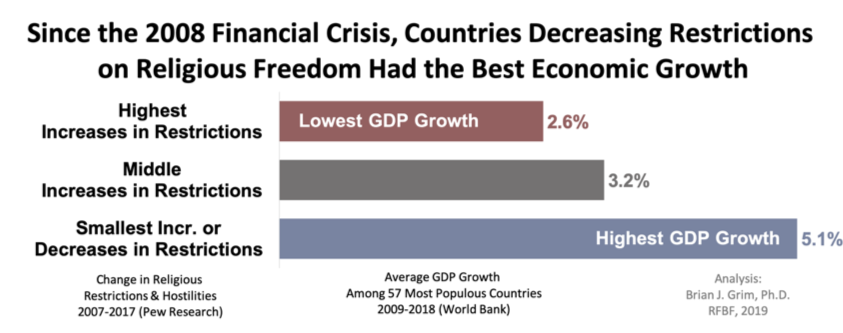RD&I Business Roundtables
International Business Roundtable on Protecting People of all Faiths and Beliefs in the Workplace
At the 2018 Global Business & Interfaith Peace Awards, former UN Secretary General Ban-ki Moon stated:
“We need to think about how business can promote peace, reconciliation, and dialogue around the world. And also how interreligious understanding can really promote peace and dialogue.”
In response, more than 20 CEOs (see below) immediately signed the Corporate Pledge on Religious Diversity and Inclusion. Also in response, the Religious Freedom & Business Foundation (RFBF), working with the International Religious Freedom (IRF) Roundtable, invites CEOs from around the world to form RD&I (Religious Diversity & Inclusion) Business Roundtables in their countries.
RD&I Business Roundtables focus on responding to religious hate and aggression, such as the recent horrendous attacks in Sri Lanka, New Zealand and the US, where many multinational companies have had employees, customers, and stakeholders who were impacted by the violence. Contact RFBF president Brian Grim to participate.
What is the Religious Freedom & Business Foundation?
The Religious Freedom & Business Foundation educates the global business community about how religious freedom is good for business, and engages the business community in joining forces with government and non-government organizations in promoting respect for freedom of religion or belief (FoRB). The Foundation places emphasis on helping businesses foster interfaith understanding and peace.
The Foundation is a non-partisan, charitable organization working with business people, academics, government officials and community leaders from multiple faiths (or of none) to accomplish its mission. The Foundation is a registered corporation and has IRS recognition as a non-profit 501(c)3 organization in the USA. It does not take a position on current political debates.
Business Case for Religious Diversity & Inclusion
The inaugural International Business Roundtable on Protecting People of all Faiths and Beliefs in the Workplace was held at the Harvard Club in New York City on Sept. 25 cohosted by Dr. Brian Grim, President of the Religious Freedom & Business Foundation, and Mr. Bruce McEver, Founder and Chairman of Berkshire Global Advisors. The event featured a discussion on the relationship between religious freedom and economic prosperity. U.S. Ambassador-at-large for International Religious Freedom Sam Brownback and the State Department’s Chief Economist Sharon Brown-Hruska sat down with business leaders, government officials and civil society representatives to discuss ways to incentivize countries to ease restrictions on religious freedom in hopes to realize their economic aspirations. See summary.
“By bringing religious diversity fully into corporate Diversity and Inclusion efforts, companies will be in a better position to more holistically address the needs of all employees.”
Michael Bodson
President and CEO
DTCC
Two billion more people live in countries with high restrictions on religious freedom than did so just a decade ago, according to the Religious Freedom & Business Foundation’s (RFBF) analysis of a July 2019 Pew Research Center report. In fact, the spread of religious restrictions and hostilities is ‘outpacing’ population growth 2-to-1. Between 2007 and 2019, the world population increased by about a billion people, which is half the increase in the number of people living with high or very high religious restrictions, as shown in the chart.
The dramatic increase in religious restrictions and hostilities impacts not only peace and stability but also slows global economic growth. Specifically, since the recovery from the 2008 financial crisis, the RFBF study finds that GDP growth rates in populous countries where religious restrictions and hostilities decreased grew at about double the rate as in countries where religious restrictions and hostilities substantially increased, as shown in the chart.
These new findings echo those of a 2014 study by researchers at Georgetown University and Brigham Young University who found that religious freedom is one of only three factors significantly associated with global economic growth, controlling for two-dozen different financial, social, and regulatory influences. They found that 10 of the 12 pillars of global competitiveness measured by the World Economic Forum were stronger in countries where religious freedom is protected by governments and respected by society.
See Brian Grim’s Talk at Texas Instruments Global HQ
On May 6, 2019, Texas Instruments (TI) and RFBF co-sponsored an in-depth discussion at TI HQ of religious diversity and an introduction to resources to help companies design successful policies and practices to maximize the benefits of religious diversity & inclusion in the workplace and global marketplace (see or read Grim’s talk).



